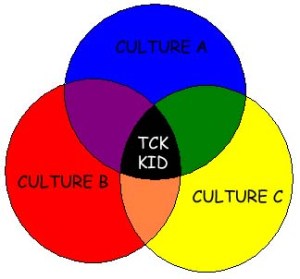Choosing a name for a child can be complicated but I think that in China it is particularly so.
The first character of a Chinese name is the surname/family name. 87% of the Chinese population take their surname from a pool of just 100.
Parents aim to select an original first name (the second and/or third character in a name) for their child rather than consult lists. There is a practical reason for this – it is to avoid having several students in the same class sharing exactly the same name – which is not that uncommon given large class sizes and the small number of surnames.
In principal, any word in the dictionary is a potential name. Names are generally chosen according to the following principals:
– the association of ideas. For example: Zhang (family name = ‘open’) Yu (first name = ‘wings’) Zhang Yu = Open Wings.
– the ‘sound’ of the name. It absolutely must sound ‘good’ and not remotely similar to any word with ‘bad’ connotations (remember that the number 4 is considered very unlucky because the word for 4 sounds like the word ‘death’).
– the ability for the name to be transcribed onto a computer – otherwise the child will not ‘exist’.
Many Chinese folk in big cities will have an English name too. It is not obligatory but can make it easier when dealing with non-native speakers. The English name is often chosen to sound like the Chinese name – but I think the principal of choosing words from the dictionary must also exist as I’ve seen the following names: ‘Heaven’, ‘Willbe’, ‘Candy’, ‘Ocean’. As the English name is not recorded officially, it can be changed at any time.
I met an Australian parent this week whose child is in a Chinese preschool and she told me that the children at the school are not even called by their names but by a number that they are assigned at the beginning of the year. It probably is more practical that way (the children can recognize a number more easily than complicated characters and the teachers can write numbers swiftly)….. but it just seems wrong to me.
 In any case, fewer people will be choosing names for children this year: I read in the TimeOutShanghai magazine last week that a drop of up to 30% in births was estimated this year. Why? Because it’s the Year of the Sheep and “many Chinese parents believe that luck comes from the year that their child was born. The sheep is thought to be passive, kind, and generous. But in a cutthroat, competitive world those qualities can be a disadvantage. Chinese tradition believes that a baby born during the Year of the Sheep will be a follower rather than a leader, will be destined for heartbreak, and will not find success in the business world. “. (Oncekids.com) Perhaps Michelangelo (architect, sculptor, painter), Mark Twain (author) and Thomas Edison (inventor) were lucky ‘sheep’
In any case, fewer people will be choosing names for children this year: I read in the TimeOutShanghai magazine last week that a drop of up to 30% in births was estimated this year. Why? Because it’s the Year of the Sheep and “many Chinese parents believe that luck comes from the year that their child was born. The sheep is thought to be passive, kind, and generous. But in a cutthroat, competitive world those qualities can be a disadvantage. Chinese tradition believes that a baby born during the Year of the Sheep will be a follower rather than a leader, will be destined for heartbreak, and will not find success in the business world. “. (Oncekids.com) Perhaps Michelangelo (architect, sculptor, painter), Mark Twain (author) and Thomas Edison (inventor) were lucky ‘sheep’
‘Shanghighs‘: Spring has arrived – and with it lots of wedding photos. I took this photo on my way to collect my son from school – Dongping Lu/Road
We survived my son’s 5th birthday party (Super-hero theme) especially as it lasted longer much longer than expected because a number of parents were unable to catch a taxi (due to the rain) to pick their child up on time – see below for explanation…..
‘Shanglows‘: Taxis are impossible to catch these days. A few months ago a phone application (naturally all in Chinese characters) was released which allows people to book directly with taxi drivers. If it’s peak period or if its raining, drivers will only accept the highest bidder….YES you can increase the taxi fee by 10rmb increments until you ‘win’ a ride.
‘Shangunusuals‘:I read this recently and found in interesting that the passion of a president could be forced upon his ‘subjects’:
“The most populous nation on the planet is in the process of producing a series of textbooks for children aimed at teaching them how to play the beautiful game. Football-mad president Xi Jinping has already made the sport a compulsory part of the national curriculum for schoolchildren, with the aim of turning his country into a football powerhouse. He dreams his country will again qualify for a World Cup” DailyMail – 11 March 2015



